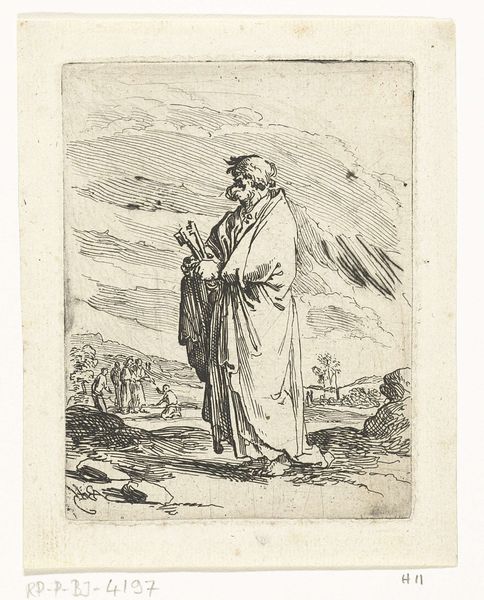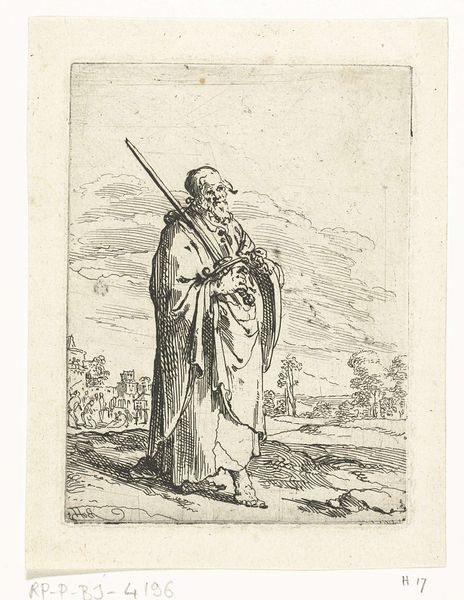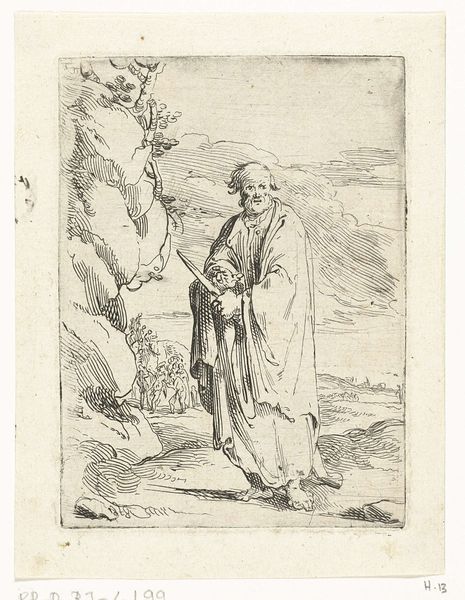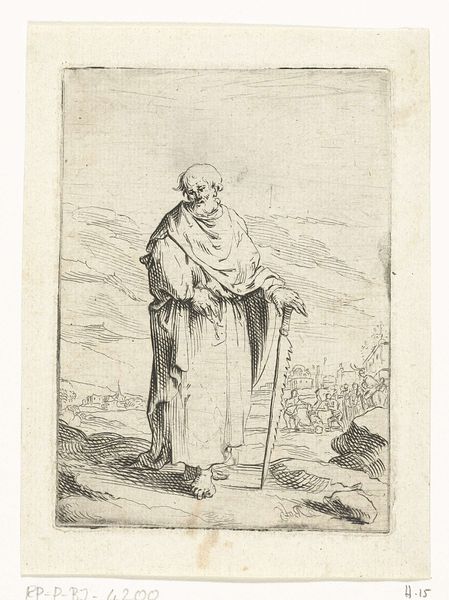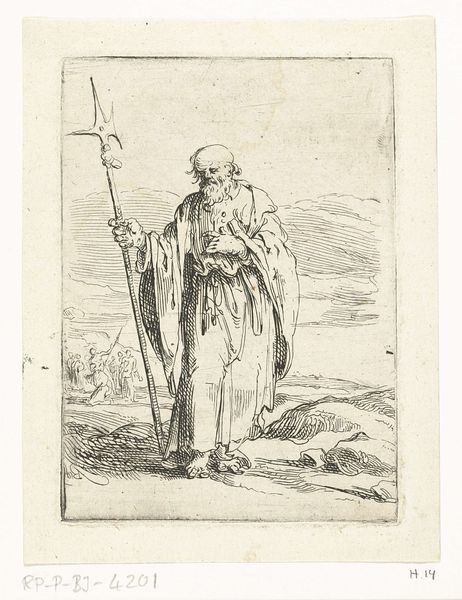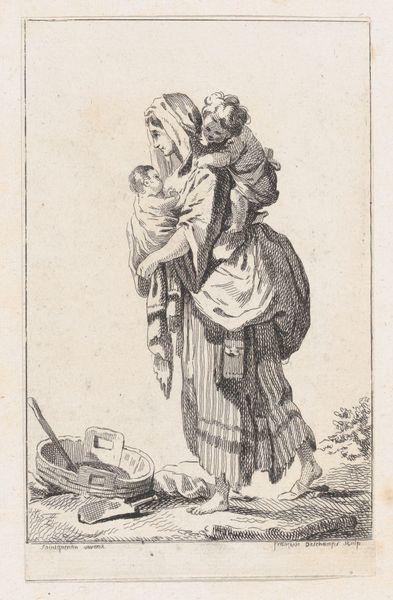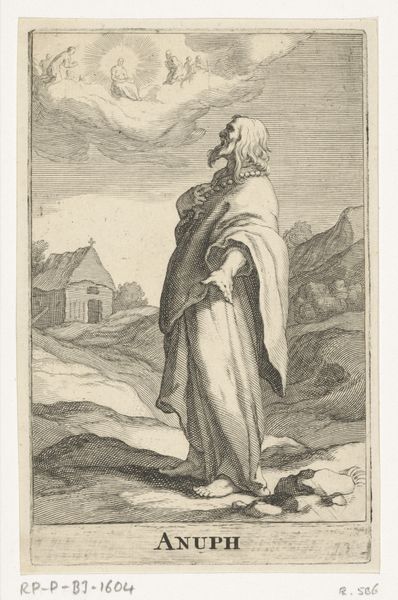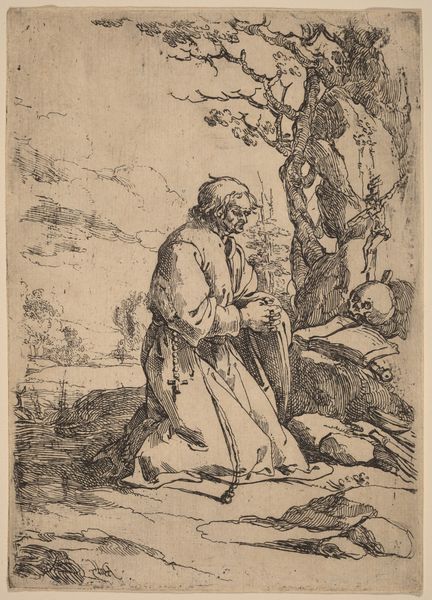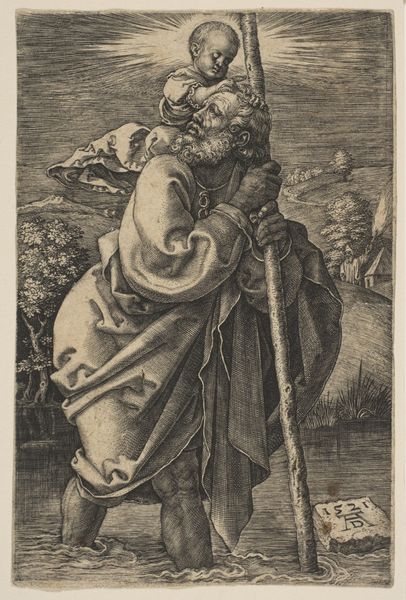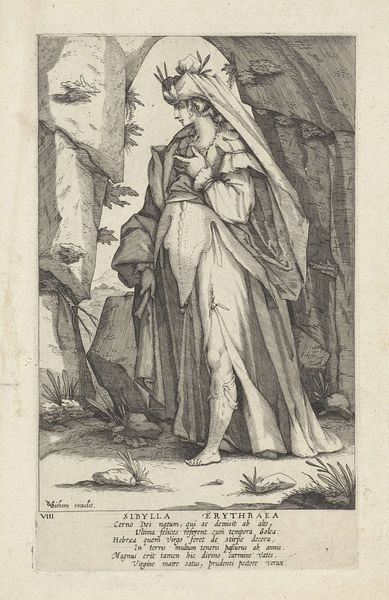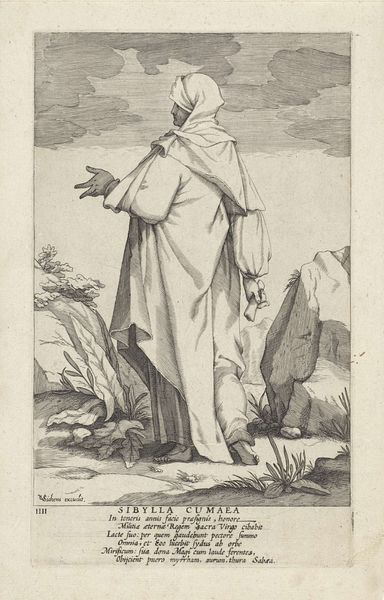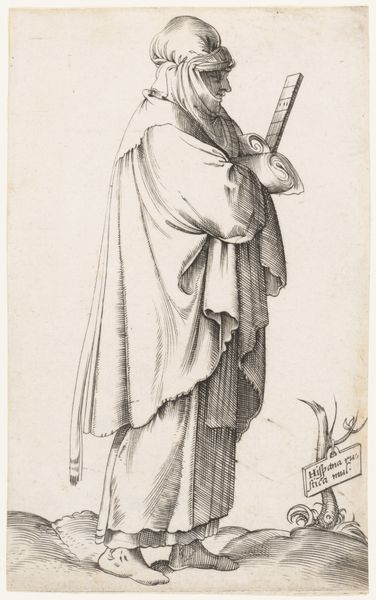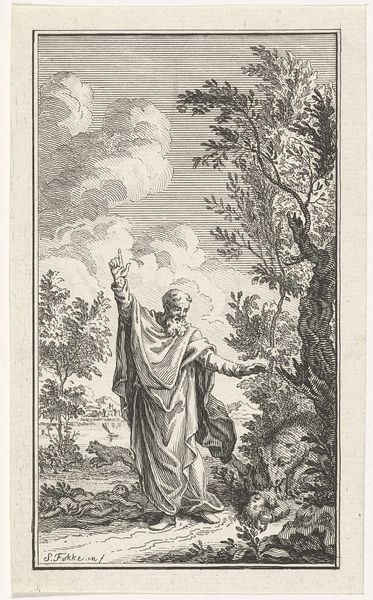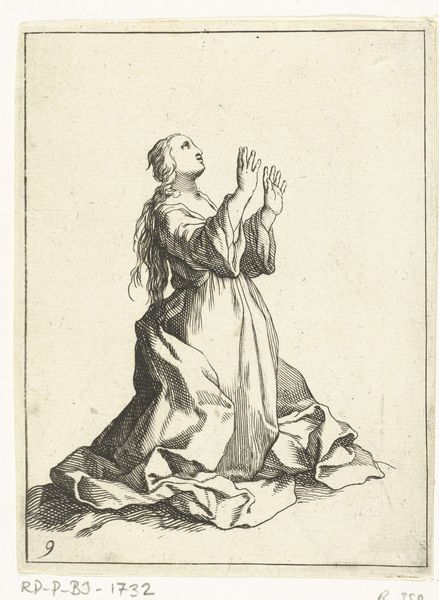
etching
#
baroque
#
etching
#
landscape
#
figuration
#
line
Dimensions: height 93 mm, width 72 mm
Copyright: Rijks Museum: Open Domain
Editor: We are looking at "Bedelmonnik" by Andries Both, created sometime between 1622 and 1642. It’s an etching, so it's all lines and shading, giving it a slightly stark, contemplative feeling. What draws your eye when you look at this piece? Curator: You know, I’m always drawn to the quiet dignity in figures like this. He seems lost in thought, perhaps wrestling with worldly concerns even amidst vows of poverty. It’s like the artist caught a fleeting moment of very human contemplation. And what about you; do you see a narrative unfolding here? Editor: It feels more like a character study than a narrative, but his hunched posture does suggest weariness or worry. Curator: Exactly. I always wonder what sort of inner life this traveling monk carries. See how the landscape is really only implied. The lines give the sense of depth, but they keep returning to the central figure, who remains isolated, caught in the middle ground. Perhaps there's something about the uncertainty of that religious and social position represented here, do you agree? Editor: It's interesting you see that social context; I tend to get caught up in just the expression on the monk's face. Curator: Sometimes, it's the subtle way artists place their subjects within the broader landscape that unlocks all sorts of things. Think of the etching’s lines like unspoken words, alluding to histories beyond what's immediately visible. He isn't alone by choice but by trade; traveling on foot, deep in thought and possibly faith, to deliver speeches on social virtues. Editor: It really is remarkable how much expression Both achieved with so few lines. I’ll definitely be looking at other etchings with new eyes now. Curator: Indeed. There's a beauty in simplicity. Maybe that's part of the lesson. Thanks for the chat!
Comments
No comments
Be the first to comment and join the conversation on the ultimate creative platform.
